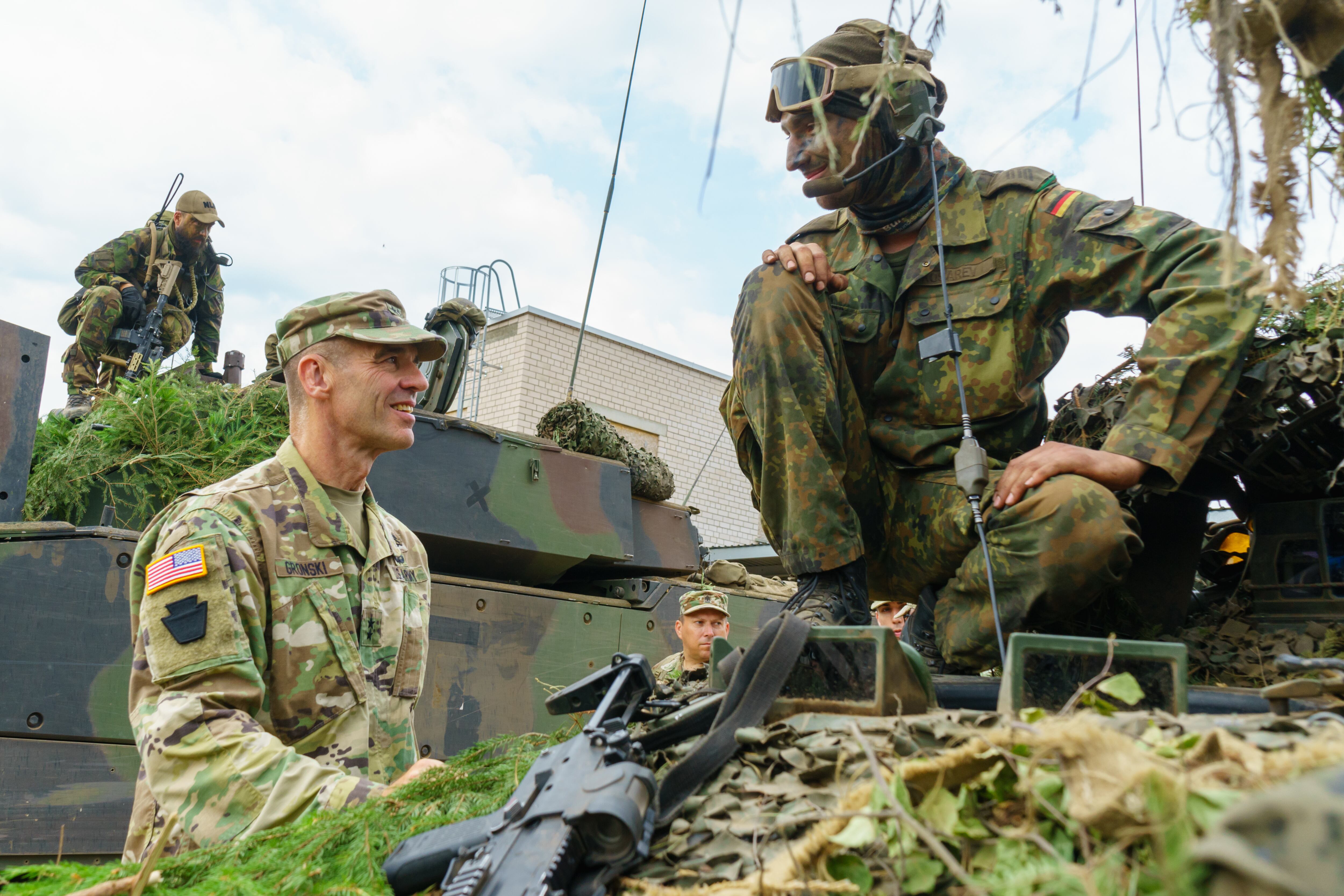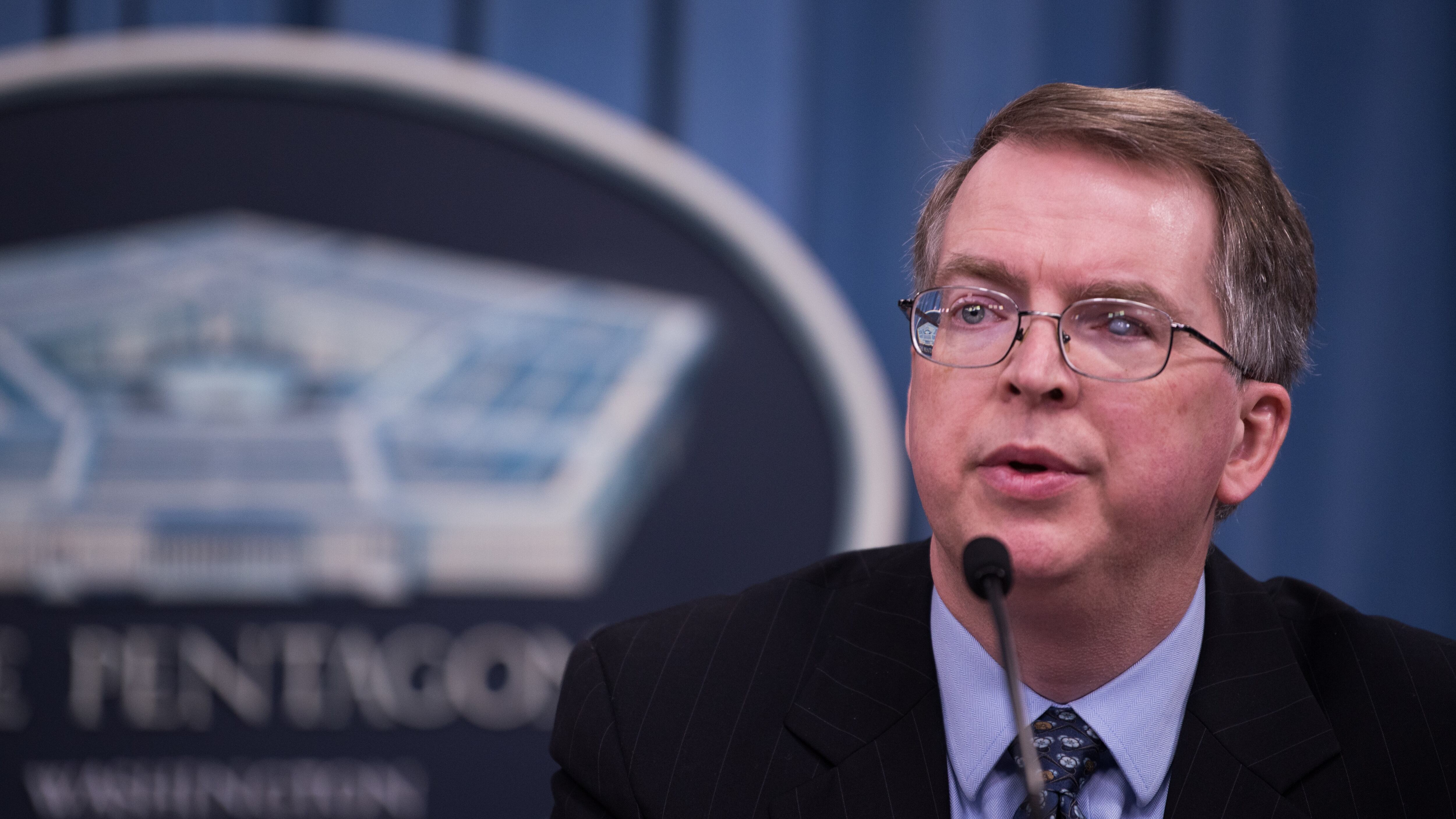WASHINGTON and PARIS — Despite a rising chorus of U.S. defense officials crying foul at European Union efforts to take a larger role in security, NATO’s top officer said that he had a close working relationship with the bloc and his forces have access to projects to improve defense infrastructure on the continent.
Gen. Tod Wolters, the supreme allied commander, last week told a group of reporters that he consults with the EU Military Committee chairman, Gen. Claudio Graziano, constantly, and that NATO is coordinating on a military-to-military basis on the so-called Permanent Structured Cooperation (PESCO) projects.
“I probably consult with Gen. Graziano as much as I consult with the chairman of the Military Committee for NATO,” Wolters said, referring to NATO military chairman Air Chief Marshal Sir Stuart Peach.
“And all those consultations focus on improving our transparency and alignment in all domains, from a military perspective, about the things we need to do to better deter and defend on the European continent."
When asked if the PESCO projects were happening in a silo, Wolters said he had “keen access” to everything the EU is working on but acknowledged alignment could be better.
RELATED

“The conversations are rich, the alignment is improving and from a mil-to-mil perspective between NATO and the EU we are doing everything we can to improve the effectiveness of what the EU does to enhance security and what NATO does to enhance security.
“We're trying to make sure that we don't have duplicity on both sides so we don't have Euros that go to waste. It's a never-ending journey, we're never going to be perfect, but each and every morning I think there is better alignment between the NATO and the EU from a military perspective.”
Trump administration defense officials have previously complained that U.S. businesses are getting cut out of EU-led European Defence Fund and PESCO projects, saying that will create interoperability problems. Projects include everything from improving port and logistics infrastructure to developing unmanned mine-hunting systems.
In November, Deputy Defense Secretary David Norquist said being cut out of the loop is hurting trans-Atlantic ties.
“Our collective strength and security hinges on our ability to bolster trans-Atlantic defense cooperation and streamline decision-making across the alliance,” Norquist said. “This is why we strongly encourage our European allies to pursue efforts that facilitate greater NATO-EU cooperation and advanced interoperability.”
In June, the Pentagon’s top weapons’ buyer, Ellen Lord, complained that the rules for who has access to the projects are overly protectionist.
“As we read the language right now, even European-based subsidiaries of U.S. corporations, with European facilities and European employees, would not be allowed to participate with intellectual property exchange and a number of other issues of programs that grow out of EDF and more importantly PESCO,” Lord said at the time, referring to the language for non-member access, which remains unfinished today.
A hefty cut on the table?
Meanwhile, funding for the European Defence Fund has become the subject of renewed negotiations due to a proposed cut by the Finnish presidency of the Council of the European Union. A “negotiating box” document prepared by the Finns as input for ongoing talks about the 2021-2027 spending priorities pegs the fund at €6 billion, which represents a decrease of roughly one-half over previous assumptions based on a European Commission proposal.
RELATED

Issue experts said the proposal is only one of many that will have to be reconciled before a final budget, dubbed the multiannual financial framework (MFF), gets approved by the member states next year. But they acknowledged that the move puts an issue back on the table that many considered settled in the context of the bloc’s growing defense ambitions.
European Commission President Ursula von der Leyen has decried the “severe" cuts to defense but also to digital infrastructure and environmental projects. “The MFF paper prepared by the Finnish Presidency for the European Council demonstrates how difficult the negotiations on the MFF are in light of pervasive differences amongst our member states as well as with the European Parliament,” she said at a press conference earlier this month.
One European diplomat said that the reductions are partly due to the UK’s upcoming exit from the European Union, which leaves a hole in member contributions that must be absorbed somehow.
Others are more blunt.
“In terms of signalling it is a very bad development,” said Yvonni-Stefania Efstathiou, a defense analyst specializing in the emerging European defense-cooperation framework PESCO. “We’re talking about EU defense and all the great projects we have in the bank, and then this happens.”
Joe Gould, Valerie Insinna and Aaron Mehta contributed to this story from Washington. Martin Banks contributed from Brussels.
David B. Larter was the naval warfare reporter for Defense News.
Sebastian Sprenger is associate editor for Europe at Defense News, reporting on the state of the defense market in the region, and on U.S.-Europe cooperation and multi-national investments in defense and global security. Previously he served as managing editor for Defense News. He is based in Cologne, Germany.








